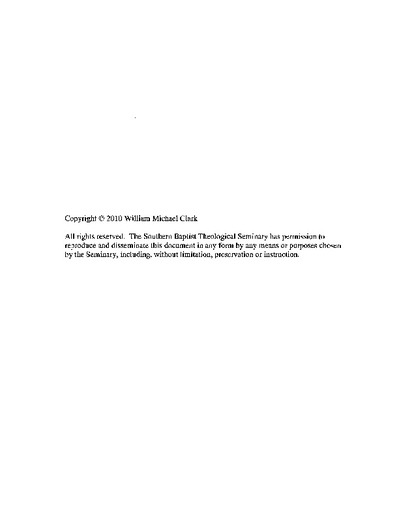| dc.description.abstract | This dissertation argues that the comparative method in the academic study of
religion can be a valuable missiological tool for Christians. Chapter 1 explains the need
for Christians to have an in-depth understanding of the Sunni worldview in order to better
contextualize the gospel.
Chapter 2 provides a history of the comparative method in the academic study
of religion, and discusses the seven most common objections to the approach.
Chapter 3 responds to the seven most common objections to the comparative
approach, proposes a method of comparison, and presents this dissertation's case study.
Chapter 4 begins with an overview of the Reformed worldview, and presents
the themes found in the OT and NT concerning God's purposes behind the suffering of
his people, and how his people should respond.
Chapter 5 includes an overview of the Sunni worldview, and presents the
themes found in the Qur' an and Sahih Al-Bukhiiri concerning God's purposes behind the
suffering of his people, and how his people should respond.
Chapter 6 compares the themes found in the Sunni and Reformed texts, and
ends with a brief discussion of some missiological implications from the study.
Chapter 7 summarizes the overall arguments and findings of the dissertation. | en_US |

